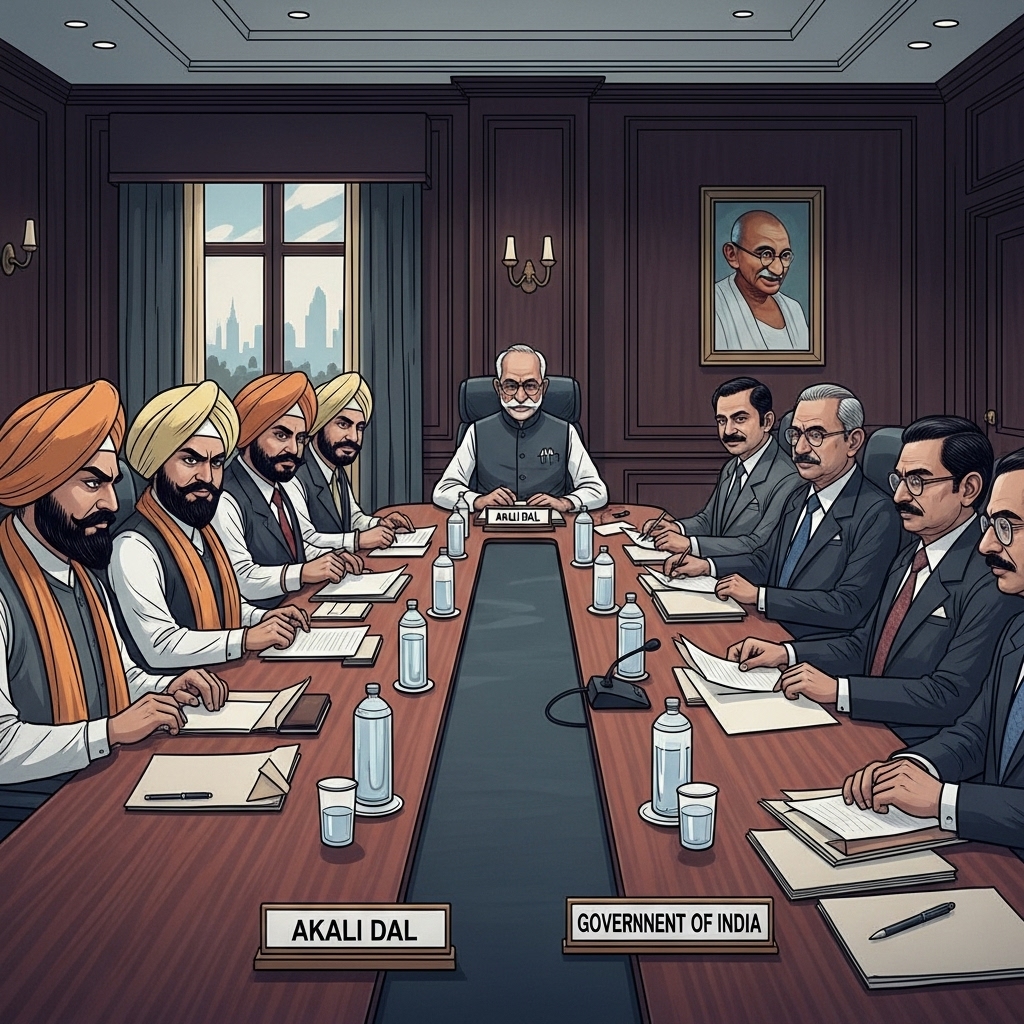🤝 1981 — Akali Dal & Government Begin Talks A crucial moment of dialogue initiates between the Akali Dal and the Indian Central Government.

In 1981, a new chapter of dialogue opened as the Akali Dal and the Indian Central Government began crucial negotiations. These talks were initiated amidst complex political dynamics in Punjab, following earlier demands for greater autonomy. The Akali Dal (a prominent Sikh political party) sought to address various religious, economic, and political grievances. The discussions aimed to find common ground and resolve long-standing issues through peaceful dialogue. Such negotiations underscore the importance of diplomacy and understanding in resolving societal challenges. They represent attempts to reconcile diverse aspirations within a pluralistic nation. These efforts remind us that dialogue, even in complex situations, is essential for progress and peace. Reflect on the enduring power of negotiation and diplomacy in striving for equity and understanding, even when facing deeply entrenched historical and political differences.
|

